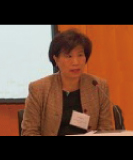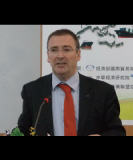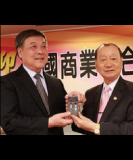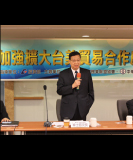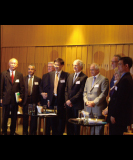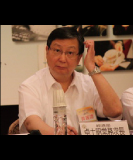You are browsing > Service Trade > Trade Info
WTO members consider EU-Japan, Turkey-Singapore trade agreementsWTO
The European Union and Japan presented WTO members with the details of their new Economic Partnership Agreement, which entered into force on 1 February 2019, at an 8 November meeting of the WTO’s Committee on Regional Trade Agreements (CRTA). Turkey and Singapore also outlined to members details of their new free trade agreement, which entered into force on 1 October 2017.
The presentations were made as part of the WTO's Transparency Mechanism for RTAs. Under this process, members notify the WTO about their RTAs and the agreements are discussed by the wider WTO membership on the basis of a factual presentation prepared by the WTO Secretariat.
European Union-Japan Economic Partnership Agreement
The EU-Japan Economic Partnership Agreement (EPA) establishes a free trade area for trade in goods and services. The agreement also contains provisions related to government procurement, investment liberalization, intellectual property, competition policy, subsidies, state-owned enterprises, regulatory cooperation, trade and sustainable development, cooperation in the field of agriculture, small and medium-sized enterprises, and a dispute settlement mechanism.
The WTO Secretariat's factual presentation on the EU-Japan FTA was circulated to WTO members on 12 August (available here).
Representatives from the EU and Japan told the CRTA that the EPA is not only important for themselves but for the multilateral trading system as a whole. Japan in particular said the agreement “demonstrates our firm political will to keep the flag of free and fair trade waving high”.
Japan said it expected the agreement to boost its GDP by 1 per cent and to boost domestic employment by 0.5 per cent. The EU said the deal substantially liberalizes trade between the two, with 94 per cent of Japan's duties on EU imports having been eliminated from 1 February and a further 3 per cent of tariff lines partially liberated through quotas. The EU for its part is liberalizing 99 per cent of its tariff lines, with trade in autos to be fully liberalized within seven years.
Both the EU and Japan noted that, in addition to liberalizing trade, the agreement reflects common values by addressing issues such as labour rights, safeguarding public services, data protection, corporate social responsibility, and the need to tackle climate change.
Several members thanked the EU and Japan for their presentation and for participating in the transparency exercise.
Turkey-Singapore Free Trade Agreement
The Turkey-Singapore Free Trade Agreement aims to liberalize and facilitate trade and investment between the two parties. The agreement consists of 18 chapters, including trade in goods and services, trade remedies, sanitary and phytosanitary measures, technical barriers to trade, customs and trade, electronic commerce, and government procurement.
The WTO Secretariat's factual presentation on the Turkey-Singapore FTA was circulated to WTO members on 12 August (available here).
Turkey told WTO members that its FTA with Singapore, the third in the region after deals with Malaysia and Korea, will lead to the gradual liberalization for all goods and services. Duties on 8 per cent of tariff lines were eliminated immediately and will eventually increase to 95 per cent over 10 years. The agreement with Singapore is the first concluded by Turkey covering government procurement, Turkey noted.
Singapore said the FTA has boosted economic ties between the two partners, with bilateral trade now exceeding $1 billion per year. Singapore highlighted that the chapter on trade in services will open services markets in sectors such as retail business and construction, and that the deal ensures protection of investments.
Several members thanked Turkey and Singapore for responding to written questions about the FTA and for participating in the transparency exercise.
Improving transparency
The chair of the committee, Ambassador Carlos Foradori of Argentina, noted that 38 “early announcements” of regional trade agreements have now been notified to the WTO, with the most recent being the Canada-Mercosur negotiations. Under the Transparency Mechanism, members participating in new negotiations aimed at the conclusion of an RTA should inform the WTO Secretariat of such negotiations.
The early announcements and other information on RTAs are maintained in the WTO's Regional Trade Agreements Database.
Members also received the latest Secretariat update on regional trade agreements that have not been notified to the WTO. Information remains outstanding on a total of 81 such RTAs.
The European Union said it is still seeking information from members of the Latin American Integration Association regarding trade agreements concluded under this framework. The EU said it will continue raising the matter until its concerns, first raised in October 2017, are addressed. Argentina and Chile said they were still working on providing responses to the EU.

